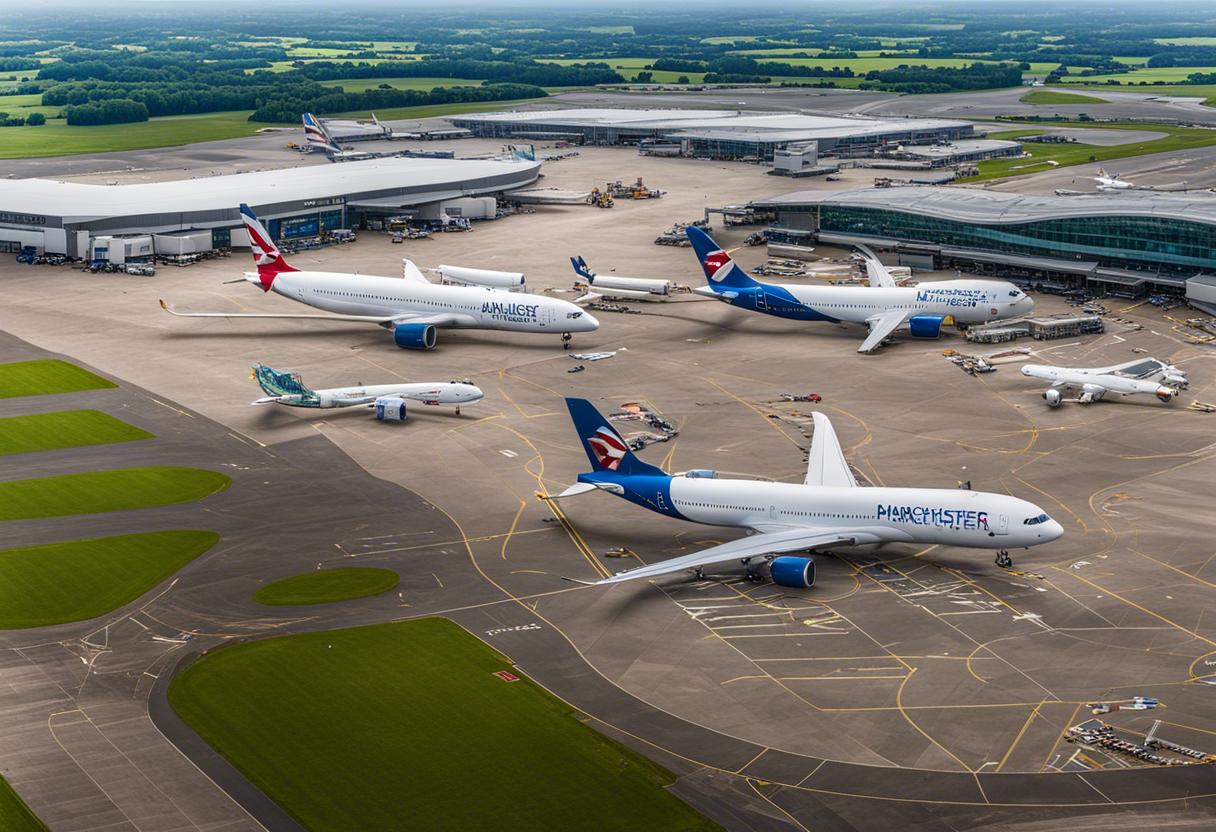Ken O’Toole, the Chief Executive of Manchester Airports Group, is eager to expand the reach of the company internationally during the period of recovery following the pandemic. Currently, his business operates airports in Manchester, London Stansted, and the East Midlands, and is aiming to manage other global hubs through commercial contracts in the near term, possibly purchasing another in the future.
Post-pandemic, O’Toole wants to position his company to benefit from anticipated changes at state-owned airports as they attempt to reignite their operations and draw in more travellers. Large airports and those situated in popular tourist areas have experienced a rapid recovery, whereas smaller ones are lagging behind. Statistics from ACI Europe demonstrate that airports that handle fewer than one million passengers annually remain 33% below their pre-Covid-19 travel numbers.
The Manchester Airports Group, which is jointly owned by the Manchester City Council, IFM Global Infrastructure Fund, and the local governments of the nine other Greater Manchester regions, holds a blended public-private ownership structure. O’Toole believes this arrangement could provide them with a competitive advantage over aggressive infrastructure funds in their international expansion endeavors.
According to O’Toole, potential foreign government partners see the company’s ownership structure as a positive aspect, speculating it to be more in line with strategic long-term partnerships than the intense funds that have managed airports in various locations.
In the long term, O’Toole said Manchester Airport Group could consider augmenting its airport portfolio, placing emphasis on global rather than domestic expansion.
Regarding the future of the industry, O’Toole predicted a balance in ticket prices after a couple of years of steep increases. Several European airlines corroborate his opinion, indicating that the multiyear climb in fares due to high travel demand and airliner shortage could reach its climax this summer. O’Toole expressed his desire for airline partners to maintain commercial viability, while also questioning the feasibility of a 20 per cent increase in air fares over the past couple of years from a consumer standpoint.
Ryanair, recognised as Europe’s leading airline in terms of passenger traffic, recently announced that its summer fares would either remain consistent with or only slightly surpass last year’s rates. A shift from their initial prediction of a 10% price increase.
Simultaneously, MAG has charted out plans to invest £2 billion on its triad of airports over the coming five year period, aiming at a significant elevation in passenger handling capacity. O’Toole expressed his anticipation for continued support from the future UK government towards escalating airport development.
In 2018, the most recent policy structure for such growth was issued in the UK, favouring a fresh airstrip at Heathrow and encouraging other airports to optimise their current facilities to the maximum extent possible.
Following this, the UK’s airports have unveiled a plethora of enlargement schemes. Collectively, the plans of the nation’s eight major airports could usher in nearly 150 million supplementary passengers annually.
Despite critics questioning the environmental impact, O’Toole maintains that the ambitious expansion goals can coexist with the net-zero climate objective as it aligns with the aviation sector’s decarbonisation blueprint, endorsed by the UK government in 2022. This information was brought to you by The Financial Times Limited, 2024.

